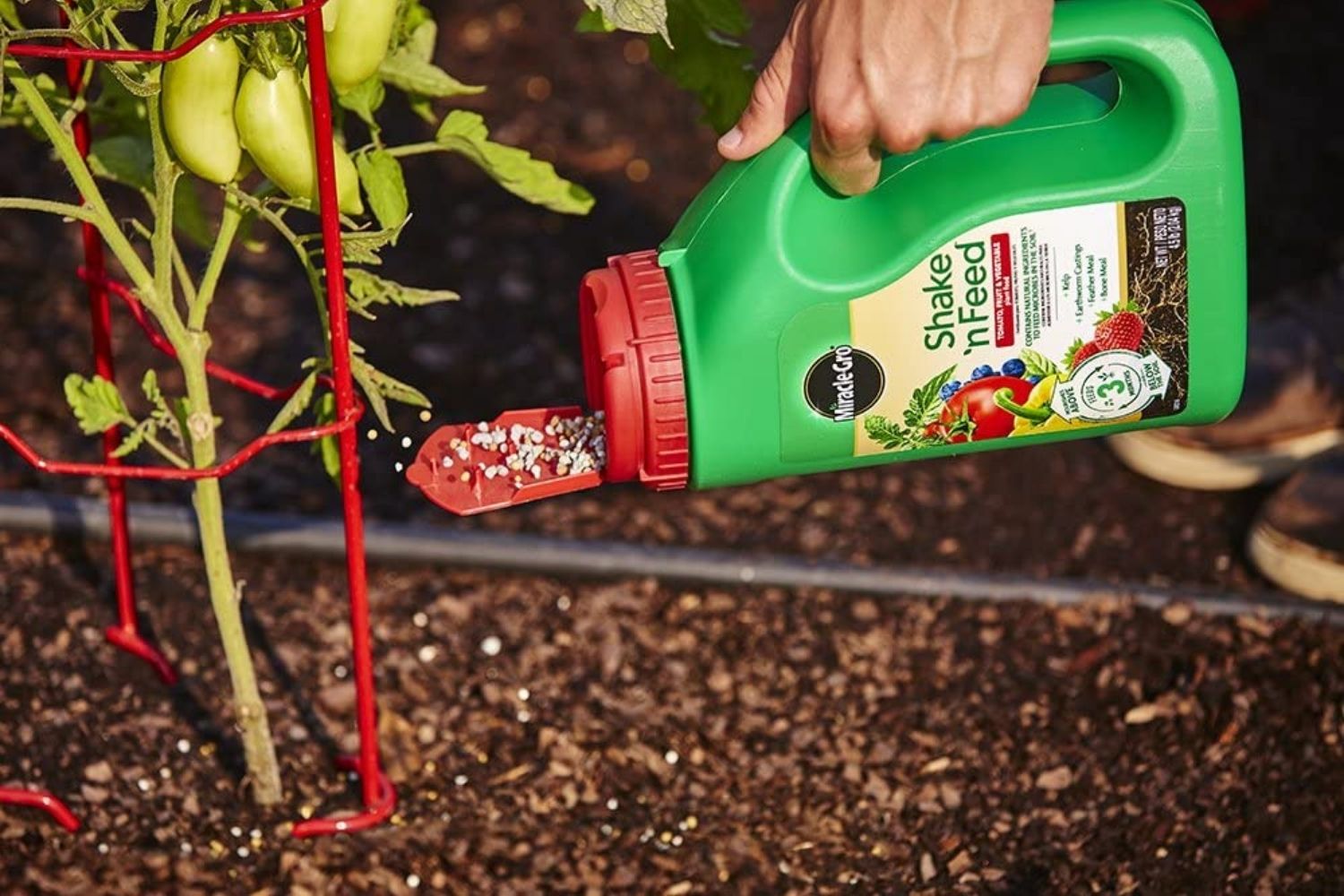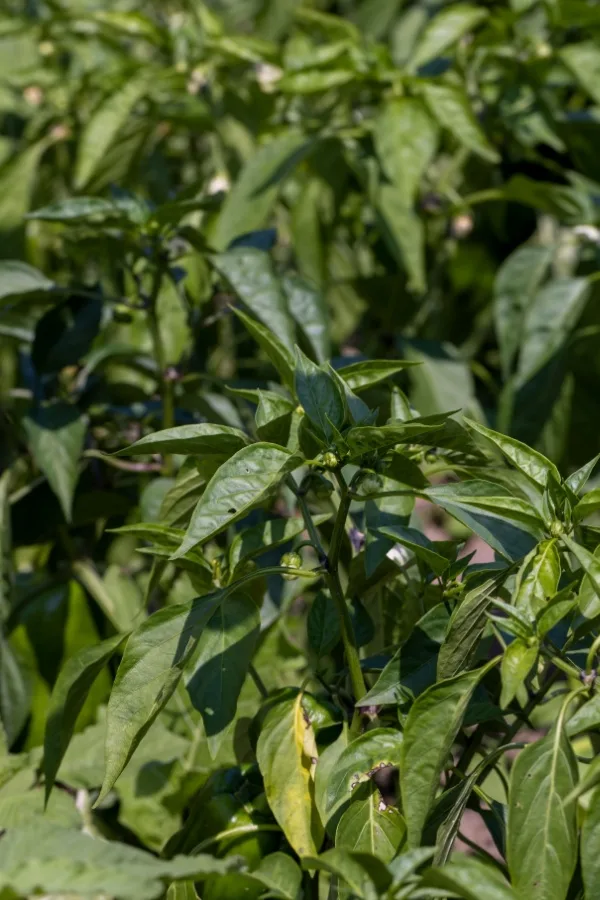Best Fertilizers for Peppers: Accomplish Superior Results in Your Garden
Best Fertilizers for Peppers: Accomplish Superior Results in Your Garden
Blog Article
Organic Vs. Synthetic Fertilizers: Which Is Best for Supporting Healthy And Balanced Pepper Plants?
In the realm of supporting healthy pepper plants, the option between synthetic and organic fertilizers stands as a pivotal decision with significant effects. While both choices purpose to provide crucial nutrients to sustain plant growth, the nuances of their influence on the soil, plant wellness, and the atmosphere spark a discussion that mirrors throughout the gardening community. Recognizing the distinct benefits and prospective risks of each fertilizer type is critical for pepper growers looking for to optimize their returns while keeping an eco-conscious and lasting technique.
Benefits of Organic Fertilizers
Organic plant foods offer an environmentally-friendly and sustainable method to nourishing pepper plants, giving vital nutrients without using artificial chemicals. These all-natural fertilizers are originated from organic resources such as garden compost, manure, bone dish, and algae, advertising dirt health and wellness and biodiversity. Unlike synthetic fertilizers, natural alternatives release nutrients slowly, making sure a balanced and consistent supply for pepper plants to grow.
One significant benefit of natural fertilizers is their ability to enhance dirt structure and water retention. By improving dirt health, organic plant foods advertise useful microbial activity, which helps in nutrient uptake by pepper plants. Furthermore, organic fertilizers reduce the danger of chemical run-off, shielding water sources from pollution and protecting the environment.
Additionally, organic plant foods add to long-lasting soil fertility by advertising the development of advantageous soil microorganisms. These microorganisms aid damage down natural issue, releasing nutrients in a form that is quickly obtainable to pepper plants. best fertilizers for peppers. By promoting a healthy and balanced dirt ecosystem, organic plant foods sustain lasting pepper farming techniques that benefit both plants and the setting
Drawbacks of Artificial Fertilizers
Synthetic plant foods, in comparison to their natural equivalents, present various negative aspects when used to nurture pepper plants, impacting both plant health and environmental sustainability. One significant disadvantage of artificial fertilizers is their propensity to seep nutrients from the soil swiftly. This quick leaching can result in vitamins and mineral imbalances in the soil, causing plants to struggle with poisonings or deficiencies. In addition, synthetic fertilizers can damage helpful dirt microorganisms, such as earthworms and helpful microorganisms, interfering with the soil environment's balance.
In addition, the overuse of synthetic plant foods can add to water air pollution. Excess fertilizers not absorbed by plants can wash away right into water bodies, resulting in eutrophication, where algae blooms deplete oxygen degrees in the water, harming water life. Synthetic plant foods are typically obtained from non-renewable sources, such as fossil gas, adding to carbon exhausts and environmental discover this info here deterioration during their manufacturing.
Nutrient Absorption Contrast
When contrasting natural and artificial fertilizers in terms of nutrient absorption, natural plant foods have the benefit of supplying a more balanced and slow-release resource of nutrients. Organic fertilizers consist of a selection of macro and trace elements that are not just advantageous for the plants but additionally promote healthy and balanced dirt microbial activity, which assists in nutrient uptake.
Furthermore, natural fertilizers boost soil structure and water retention capacity, enabling pepper plants to gain access to nutrients more efficiently. This better soil top quality facilitates origin growth, allowing far better nutrient absorption. Artificial plant foods, although at first enhancing plant development as a result of their high nutrient concentrations, may impede lasting nutrient absorption by degrading soil health with time.
Environmental Impact Factors To Consider

On the other hand, artificial plant foods, although frequently more focused and quickly available to plants, can have harmful effects on the setting otherwise applied appropriately (best fertilizers for peppers). Their production needs high energy inputs, bring about greenhouse gas discharges and adding to environment adjustment. Moreover, the drainage of excess synthetic plant foods can infect water resources, bring about eutrophication and harming aquatic environments.
Finest Plant Food Practices for Peppers
When fertilizing pepper plants, enhancing nutrient uptake and lessening environmental impact are key factors to consider. To achieve this, it is vital to adhere to best fertilizer methods customized to the details needs of pepper plants. One essential method is to perform a soil test prior to applying any kind of fertilizers. This test can establish the pH level of the dirt and determine any type of nutrient shortages, directing you in picking the most ideal plant food formula.
An additional crucial practice is to feed pepper plants at the correct time. navigate to this site Commonly, peppers gain from getting fertilizer at planting and afterwards again when they begin to blossom. Over-fertilizing can bring about nutrition discrepancies and hurt the plants, so it is essential to adhere to suggested application rates.
Additionally, selecting a balanced plant food with an NPK proportion that suits pepper plants' requirements Bonuses is fundamental. Eventually, integrating organic and artificial fertilizers sensibly can aid support healthy pepper plants while reducing environmental influence.
Final Thought

Organic fertilizers supply a lasting and environmentally-friendly approach to nourishing pepper plants, giving essential nutrients without the usage of artificial chemicals. Unlike artificial fertilizers, organic alternatives release nutrients gradually, making sure a consistent and well balanced supply for pepper plants to prosper.
Synthetic fertilizers, in contrast to their natural counterparts, posture various negative aspects when used to nurture pepper plants, influencing both plant health and environmental sustainability. When contrasting synthetic and natural plant foods in terms of nutrient absorption, organic plant foods have the advantage of giving an extra balanced and slow-release resource of nutrients.In addition, organic fertilizers enhance soil framework and water retention capacity, permitting pepper plants to accessibility nutrients extra effectively.
Report this page